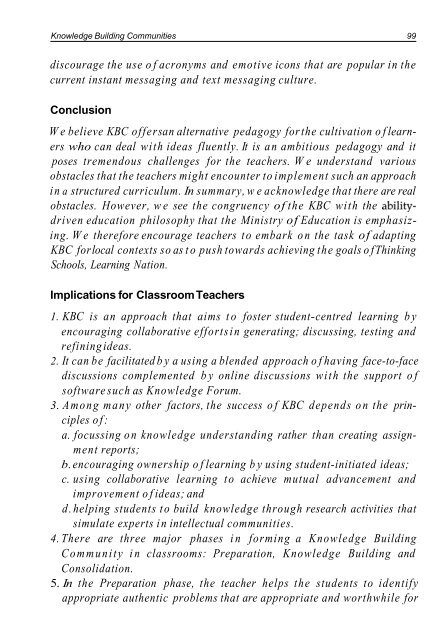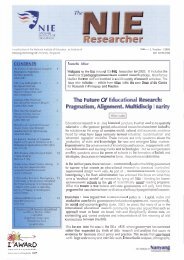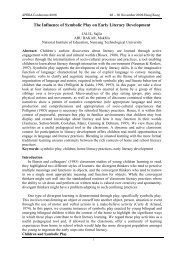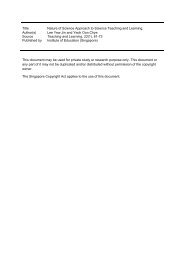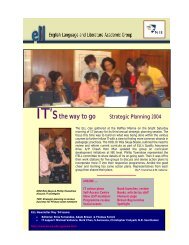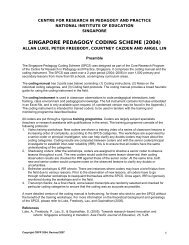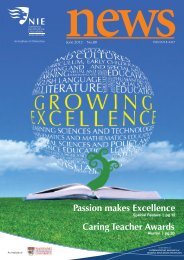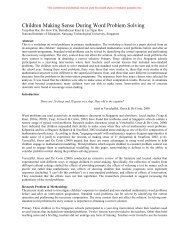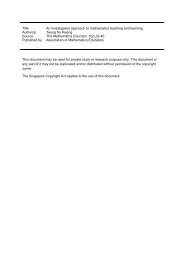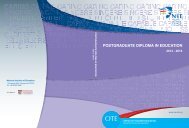Cooperative Learning - NIE Digital Repository - National Institute of ...
Cooperative Learning - NIE Digital Repository - National Institute of ...
Cooperative Learning - NIE Digital Repository - National Institute of ...
Create successful ePaper yourself
Turn your PDF publications into a flip-book with our unique Google optimized e-Paper software.
Knowledge Building Communities 99discourage the use <strong>of</strong> acronyms and emotive icons that are popular in thecurrent instant messaging and text messaging culture.ConclusionWe believe KBC <strong>of</strong>fers an alternative pedagogy for the cultivation <strong>of</strong> learnerswho can deal with ideas fluently. It is an ambitious pedagogy and itposes tremendous challenges for the teachers. W e understand variousobstacles that the teachers might encounter to implement such an approachin a structured curriculum. In summary, we acknowledge that there are realobstacles. However, we see the congruency <strong>of</strong> the KBC with the abilitydriveneducation philosophy that the Ministry <strong>of</strong> Education is emphasizing.We therefore encourage teachers to embark on the task <strong>of</strong> adaptingKBC for local contexts so as to push towards achieving the goals <strong>of</strong> ThinkingSchools, <strong>Learning</strong> Nation.Implications for Classroom Teachers1. KBC is an approach that aims to foster student-centred learning byencouraging collaborative efforts in generating; discussing, testing andrefining ideas.2. It can be facilitated by a using a blended approach <strong>of</strong> having face-to-facediscussions complemented by online discussions with the support <strong>of</strong>s<strong>of</strong>tware such as Knowledge Forum.3. Among many other factors, the success <strong>of</strong> KBC depends on the principles<strong>of</strong>:a. focussing on knowledge understanding rather than creating assignmentreports;b. encouraging ownership <strong>of</strong> learning by using student-initiated ideas;c. using collaborative learning to achieve mutual advancement andimprovement <strong>of</strong> ideas; andd. helping students to build knowledge through research activities thatsimulate experts in intellectual communities.4. There are three major phases in forming a Knowledge BuildingCommunity in classrooms: Preparation, Knowledge Building andConsolidation.5. In the Preparation phase, the teacher helps the students to identifyappropriate authentic problems that are appropriate and worthwhile for


